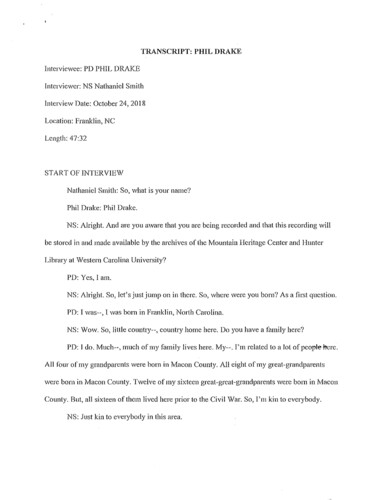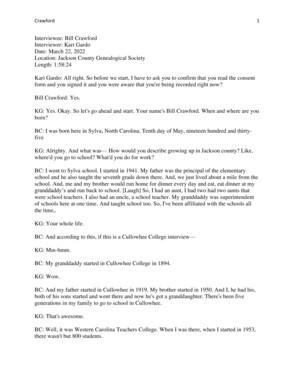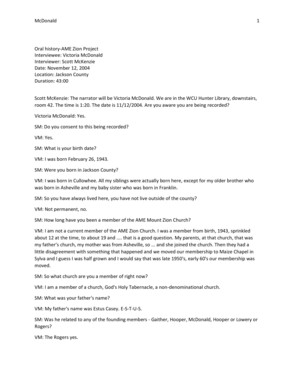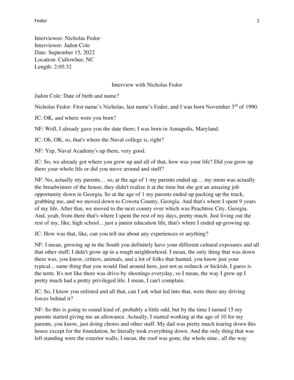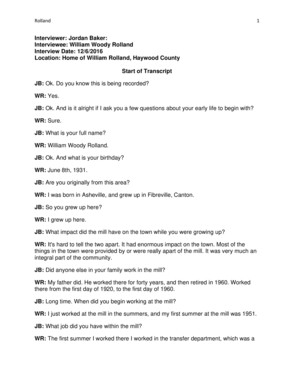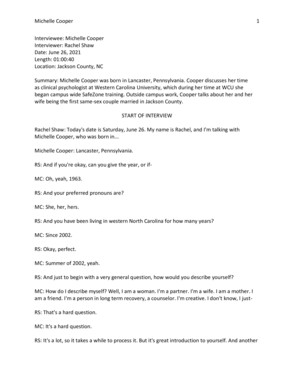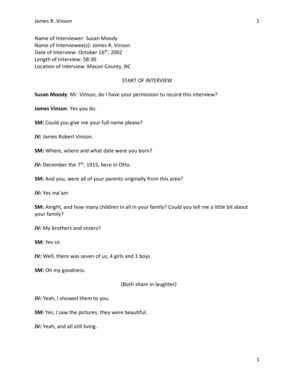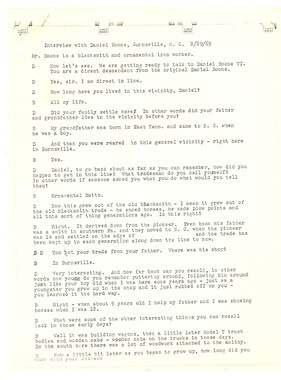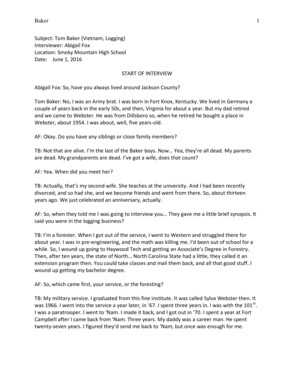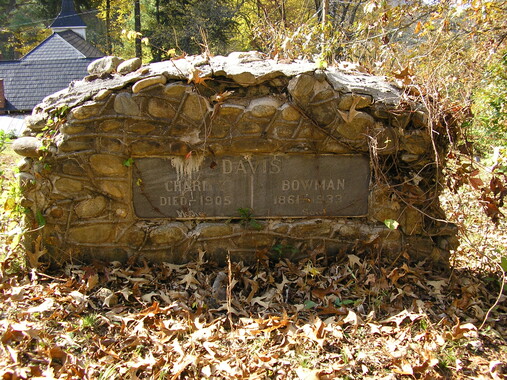Western Carolina University (20)
View all
- Canton Champion Fibre Company (2308)
- Cherokee Traditions (293)
- Civil War in Southern Appalachia (165)
- Craft Revival (1942)
- Great Smoky Mountains - A Park for America (2767)
- Highlights from Western Carolina University (430)
- Horace Kephart (941)
- Journeys Through Jackson (154)
- LGBTQIA+ Archive of Jackson County (19)
- Oral Histories of Western North Carolina (314)
- Picturing Appalachia (6679)
- Stories of Mountain Folk (413)
- Travel Western North Carolina (160)
- Western Carolina University Fine Art Museum Vitreograph Collection (129)
- Western Carolina University Herbarium (92)
- Western Carolina University: Making Memories (708)
- Western Carolina University Publications (2283)
- Western Carolina University Restricted Electronic Theses and Dissertations (146)
- Western North Carolina Regional Maps (71)
- World War II in Southern Appalachia (131)
University of North Carolina Asheville (6)
View all
- 1700s (1)
- 1860s (1)
- 1890s (1)
- 1900s (2)
- 1920s (2)
- 1930s (5)
- 1940s (12)
- 1950s (19)
- 1960s (35)
- 1970s (31)
- 1980s (16)
- 1990s (10)
- 2000s (20)
- 2010s (24)
- 2020s (4)
- 1600s (0)
- 1800s (0)
- 1810s (0)
- 1820s (0)
- 1830s (0)
- 1840s (0)
- 1850s (0)
- 1870s (0)
- 1880s (0)
- 1910s (0)
- Appalachian Region, Southern (15)
- Asheville (N.C.) (11)
- Avery County (N.C.) (1)
- Buncombe County (N.C.) (55)
- Cherokee County (N.C.) (17)
- Clay County (N.C.) (2)
- Graham County (N.C.) (15)
- Great Smoky Mountains National Park (N.C. and Tenn.) (1)
- Haywood County (N.C.) (40)
- Henderson County (N.C.) (5)
- Jackson County (N.C.) (131)
- Knox County (Tenn.) (1)
- Macon County (N.C.) (17)
- Madison County (N.C.) (4)
- McDowell County (N.C.) (1)
- Mitchell County (N.C.) (5)
- Polk County (N.C.) (3)
- Qualla Boundary (6)
- Rutherford County (N.C.) (1)
- Swain County (N.C.) (30)
- Watauga County (N.C.) (2)
- Waynesville (N.C.) (1)
- Yancey County (N.C.) (3)
- Blount County (Tenn.) (0)
- Knoxville (Tenn.) (0)
- Lake Santeetlah (N.C.) (0)
- Transylvania County (N.C.) (0)
- Interviews (314)
- Manuscripts (documents) (3)
- Personal Narratives (7)
- Photographs (4)
- Sound Recordings (308)
- Transcripts (216)
- Aerial Photographs (0)
- Aerial Views (0)
- Albums (books) (0)
- Articles (0)
- Artifacts (object Genre) (0)
- Biography (general Genre) (0)
- Cards (information Artifacts) (0)
- Clippings (information Artifacts) (0)
- Crafts (art Genres) (0)
- Depictions (visual Works) (0)
- Design Drawings (0)
- Drawings (visual Works) (0)
- Envelopes (0)
- Facsimiles (reproductions) (0)
- Fiction (general Genre) (0)
- Financial Records (0)
- Fliers (printed Matter) (0)
- Glass Plate Negatives (0)
- Guidebooks (0)
- Internegatives (0)
- Land Surveys (0)
- Letters (correspondence) (0)
- Maps (documents) (0)
- Memorandums (0)
- Minutes (administrative Records) (0)
- Negatives (photographs) (0)
- Newsletters (0)
- Newspapers (0)
- Occupation Currency (0)
- Paintings (visual Works) (0)
- Pen And Ink Drawings (0)
- Periodicals (0)
- Plans (maps) (0)
- Poetry (0)
- Portraits (0)
- Postcards (0)
- Programs (documents) (0)
- Publications (documents) (0)
- Questionnaires (0)
- Scrapbooks (0)
- Sheet Music (0)
- Slides (photographs) (0)
- Specimens (0)
- Speeches (documents) (0)
- Text Messages (0)
- Tintypes (photographs) (0)
- Video Recordings (physical Artifacts) (0)
- Vitreographs (0)
- WCU Mountain Heritage Center Oral Histories (25)
- WCU Oral History Collection - Mountain People, Mountain Lives (71)
- Western North Carolina Tomorrow Black Oral History Project (69)
- A.L. Ensley Collection (0)
- Appalachian Industrial School Records (0)
- Appalachian National Park Association Records (0)
- Axley-Meroney Collection (0)
- Bayard Wootten Photograph Collection (0)
- Bethel Rural Community Organization Collection (0)
- Blumer Collection (0)
- C.W. Slagle Collection (0)
- Canton Area Historical Museum (0)
- Carlos C. Campbell Collection (0)
- Cataloochee History Project (0)
- Cherokee Studies Collection (0)
- Daisy Dame Photograph Album (0)
- Daniel Boone VI Collection (0)
- Doris Ulmann Photograph Collection (0)
- Elizabeth H. Lasley Collection (0)
- Elizabeth Woolworth Szold Fleharty Collection (0)
- Frank Fry Collection (0)
- George Masa Collection (0)
- Gideon Laney Collection (0)
- Hazel Scarborough Collection (0)
- Hiram C. Wilburn Papers (0)
- Historic Photographs Collection (0)
- Horace Kephart Collection (0)
- Humbard Collection (0)
- Hunter and Weaver Families Collection (0)
- I. D. Blumenthal Collection (0)
- Isadora Williams Collection (0)
- Jesse Bryson Stalcup Collection (0)
- Jim Thompson Collection (0)
- John B. Battle Collection (0)
- John C. Campbell Folk School Records (0)
- John Parris Collection (0)
- Judaculla Rock project (0)
- Kelly Bennett Collection (0)
- Love Family Papers (0)
- Major Wiley Parris Civil War Letters (0)
- Map Collection (0)
- McFee-Misemer Civil War Letters (0)
- Mountain Heritage Center Collection (0)
- Norburn - Robertson - Thomson Families Collection (0)
- Pauline Hood Collection (0)
- Pre-Guild Collection (0)
- Qualla Arts and Crafts Mutual Collection (0)
- R.A. Romanes Collection (0)
- Rosser H. Taylor Collection (0)
- Samuel Robert Owens Collection (0)
- Sara Madison Collection (0)
- Sherrill Studio Photo Collection (0)
- Smoky Mountains Hiking Club Collection (0)
- Stories of Mountain Folk - Radio Programs (0)
- The Reporter, Western Carolina University (0)
- Venoy and Elizabeth Reed Collection (0)
- WCU Gender and Sexuality Oral History Project (0)
- WCU Students Newspapers Collection (0)
- William Williams Stringfield Collection (0)
- Zebulon Weaver Collection (0)
- African Americans (97)
- Artisans (5)
- Cherokee pottery (1)
- Cherokee women (1)
- College student newspapers and periodicals (4)
- Education (3)
- Floods (13)
- Folk music (3)
- Great Smoky Mountains National Park (N.C. and Tenn.) (1)
- Hunting (1)
- Mines and mineral resources (2)
- Rural electrification -- North Carolina, Western (2)
- School integration -- Southern States (2)
- Segregation -- North Carolina, Western (5)
- Slavery (5)
- Sports (2)
- Storytelling (3)
- World War, 1939-1945 (3)
- Appalachian Trail (0)
- Cherokee art (0)
- Cherokee artists -- North Carolina (0)
- Cherokee language (0)
- Church buildings (0)
- Civilian Conservation Corps (U.S.) (0)
- Dams (0)
- Dance (0)
- Forced removal, 1813-1903 (0)
- Forest conservation (0)
- Forests and forestry (0)
- Gender nonconformity (0)
- Landscape photography (0)
- Logging (0)
- Maps (0)
- North Carolina -- Maps (0)
- Paper industry (0)
- Postcards (0)
- Pottery (0)
- Railroad trains (0)
- Waterfalls -- Great Smoky Mountains (N.C. and Tenn.) (0)
- Weaving -- Appalachian Region, Southern (0)
- Wood-carving -- Appalachian Region, Southern (0)
- Sound (308)
- StillImage (4)
- Text (219)
- MovingImage (0)
Interview with Phil Drake
Item
Item’s are ‘child’ level descriptions to ‘parent’ objects, (e.g. one page of a whole book).
-
-
TRANSCRIPT: PHIL DRAKE Interviewee: PD PHIL DRAKE Interviewer: NS Nathaniel Smith Interview Date: October 24,2018 Location: Franklin, NC Length: 47:32 START OF INTERVIEW Nathaniel Smith: So, what is yonr name? Phil Drake: Phil Drake. NS: Alright. And are yon aware that you are being recorded and that this recording will be stored in and made available by the archives of the Monntain Heritage Center and Hunter Library at Western Carolina University? PD: Yes, I am. NS: Alright. So, let's just jump on in there. So, where were you bom? As a first question. PD: I was--, I was bom in Franklin, North Carolina. NS: Wow. So, little country--, country home here. Do you have a Hunily here? PD: l do. Much--, much of my family lives here. My--. I'm related to a lot ofpeoplellcre. All four of my grandparents were born in Macon County. All eight of my great-grandparents were born in Macon County. Twelve of my sixteen great-great-grandparents were born in Macon County. But, all sixteen of them lived here prior to the Civil War. So, I'm kin to everybody. NS: Just kin to everybody in this area. Phil Drake PD: I am. I have three kids, 6 grandkids, and all of them lived here until recently when my daughter moved to Asheville. NS: Very nice. So, for the most part you've all stayed here, I guess? In this area? PD: Yeah, my--. All of my siblings stayed here in Franklin. NS: Interesting. How did you all--. How did you--, how did you learn about that whole histmy of your family? PD: I do a lot on ancestry.com. Plus, I [pause] spent--. I grew up on my grandparents' farm, sol got a lot of history from them. So--. But ancestry.com is a great site. You--. If you want to find out where you came from. NS: Just type your name in there and then--. PD: Yeah. It's a--, it's a good place. 2 NS: I've always wanted to try that, so I may have to do that someday. So--. Because I've always been interested. I was like, "How do you know where I'm from?" But I'll have to do that. So, from kind of just a general thing, what are some of your early childhood memories? They don't have to be related to work, just any random memories. Maybe the ones you like to tell your family. Funny times or something. PD: [pause] I grew up on a fann from the time--. \Ve moved up to my grandfather's farm when I was nine. I put up hay. I drove a tractor by the time I was eleven. We had to milk cows morning and evening. We gardened. So, l was very thankful when I turned sixteen and could get a paying job. Child slave labor until I was sixteen. But, growing up on the farm was great. I loved--, I loved that. I don't ever want to milk a cow again, but I loved growing up on the farm. NS: What was the job that you got when you were sixteen? PD: Bagging groceries in the Winn Dixie grocery store right down here in East Franklin. Phil Drake NS: Right clown there, like where--? PD: Where Hot Spot is now. NS: Exactly, yeah. I think I remember way back in the clay, my grandparents used to--. 3 Or, I mean, my parents anyway. When they moved up here, they used to shop there. l was thinking about that. That's interesting. So, do you like--. With the work you do now--. Well, first of all, what is the work that you do now? PD: I run--. The primary business is we run a software company, tax software for accountants. But we also run several retail businesses, several tourism businesses, and [pause]--. And while we're focused mainly in Franklin, we currently have offices in Dillsboro, Hayesville, Franklin, and Nashville because we just needed to expand and draw more employees. NS: So, do you--. With your experience on working on the farm or anything, do you attribute any of your, I guess, desire to work from that whole history of working on the farm? PD: Well, I always wanted to be a math teacher. That was--, that was my goal in life was to teach high school math for thirty years and then retire. [pause] When I graduated from college, l was recruited to teach high school in Greeneville, South Carolina. I taught down there for three years until my dad's health stmied to fail. My clad was an accountant. He did tax returns with a pencil. So, I came back here and went to work for him doing something that I said I would never do, which is tax returns with a pencil. I--, I--, I never wanted--. That was not in my wildest imagination. I thought I would be a lawyer or a teacher or an astronaut growing up. So, I--, I taught high school math and science. Once I came back here and did tax returns with a pencil, at that point I had never seen a computer that had a video display in my life. I was--. The first time l saw one was when I was 27 years old. Saw my first computer that had a video display. I was convinced I could program it to do tax returns so that I could stop doing tax returns with a pencil. Phil Drake I had no idea that I would ever sell software to anybody else. I was trying to [pause ]make my life easier. That's--, that--, that was the whole goal was to buy a computer--. And so, we bought an IBM computer. It was a mini computer. This is five years before the PC came out. NS: Gotcha. What, like, what general time period was this? 4 PO: 1977. So--. And the other reason is you never thought about selling software is because nobody else had a computer. So, you can't sell software because nobody had a computer. And the computer we got was 22, 385 dollars. That's in 1977 dollars. That was a-··, that was a chunk of money. If you compare that to my first house, my first house cost twentythousand dollars. So that's--, that's a big deal. So, I programed it to do tax returns. My 113M salesman came by, saw what I was doing, and said, "You know, I--, I don't have anything like this. Won't you go on the road with me and I'll sell a computer and we'll sell your software." So, I did. I started that in '77, '78. And, I sold my first set of software to a lady in Statesville, Nmih Carolina. Who is still my customer today. NS: Really? PO: Yeah. [pause] And so, that's kind of how I got started in the sollware business. It was entirely by accident. NS: Entirely by accident, but then it just took oiL Man, that is insane. PO: Yeah, well it took--. It--, it took a long time to take off. A Jot of blood, sweat, and tears, and tlnancial problems. It was not easy. I tell people it took me thirty years to be an overnight success [laughter]. A long thirty years. NS: A long thirty years. The long haul. But either way, here we are today. PO: Yeah. Phil Drake NS: So, what are the--, some of the--, l guess blood, sweat, and tears that you went thwugh? Like, what are some of your biggest challenges, I guess. PD: Well, the biggest challenge was finances. In--, in 1981, I was bankrupt. We filed for chapter eleven bankruptcy, which means you pay your debts, but the Corp protects you while they allow you to operate and pay your debts. And that--. It--. So, I had to operate with--, on a shoestring budget. I had tlu·ec small children at the time. We--, we survived on \VIC, which is similar to Food Stamps, and what I could borrow. It took us six years to pay out of debt, but we paid everybodyevery dime that we owed them. And, by 1987, I was out of debt. And I tell people to avoid debt like the plague because that debt bonowing--. I was growing too fast. And, because I couldn't afford to pay people, I was working a hundred-hour weeks. I--, I had--. I was selling soitware. I was writing sot\ ware. I was doing all those things. I missed my kids' first piano recital because I was on the road. [pause] And--, and I regret how much I was away from my family in those years. Frequently, they \vould bring me supper here in the office, spend a little time with me, then they'd go home, and I'd stay here working until the wee hours of the morning. [pause] I wouldn't recommend that for anybody. It was not a good life or balance. Let's put it that way. NS: So, when you started to find that balance, like, how did--, how did things progressively change, I guess, for you? Like, when you finally--. PD: Well, once we paid out of debt, things began to change pretty quickly atler that. 5 There's several things that happened to us that helped us grow. One was the PC came--, came out. So, now instead of a twenty-two-thousand-dollar computer, people could get a fivethousand- dollar computer. The second thing that happened was laser printers went fi·om fitly thousand dollars to thirty-five hundred dollars. And then the third thing that happened for us was Phil Drake 6 electronic filing of tax returns was introduced as a pilot project in 1985. And we participated in the pilot project with the IRS in three cities in the country. And that year, there were twenty-five thousand total returns done in the country electronically. And we did five thousand of them. So, that really kind of got us in the front door of electronic filing. And now electronic filing of tax returns is the biggest part of our business. And--, and so we [pause]--. Tllis past year, we did about eighteen million federal returns and about fourteen million state returns. That's--, that's a lot of lax returns. here? NS: Oh yeah. And that's during, like, tax season era and stutT? PD: Yeah. NS: What does tax season generally look like? What, like--, a nonnal day in tax season PD: Well, tax season for us starts in September because we have to get--. We start getting new forms for the next tax season, so we start programing--. And we reprogram eleven thousand pages between August, September, and then December 31st because when January the 2"d gets here, we have to have the software ready. So, we've--, we've got three months of heavy development so it's all hands on deck--. \Ve ask people to work as much as they're willing to work. Then, once we get into January the 2"d, that's when the phone calls kick in. Because now people are installing their software. They're--. They have printer problems and network problems, and they have questions about how to install the software, how to run it.. And so, from January the 2"d to Aprill5'", we answer lots of phone calls. On our peak day, we will take fifteen or sixteen thousand phone calls in one day. So, we have to have--, we have to have a lot of people that work in our call center answering questions. NS: To be able to do that. Yeah? Phil Drake PD: Yeah. NS: And, like, I'd imagine that would be long shifts too to be able to pack that many in one day. 7 PO: It--, it--, it is because we--, we stmi answering the phone at eight AM, and we run until ten PM. And the--. As we get closer to April the 151h, we'll start running until midnight. So, it's--, it's a very long day, but we have several shifts of folks that--, that help do that. But it takes a lot of people to answer fourteen, fifteen thousand phone calls. NS: I'd imagine. Goodness gracious. !--. You know--. Like, I--, 1--. You know, I always heard from fi·iends that work in your--, in your business and stuff. Like, just the stories oC like "Man, it's tax season. We're so busy now." But I didn't realize it was that busy. Like, that's incredible. PD: Yeah. It's--. Our--. Many of our folks will answer a hundred phone calls in a day. That's about all you can handle. By the time you've answered a hundred phone calls, you're--, you're just cooked. Your brain is cooked. Your voice is cooked. You just--, you just can't do more than that. NS: You just come out ready-baked in the oven and stuff. PD: Yeah. NS: Ohman. So, kind of going off of what yon were saying how you didn't originally want to do tax with a pencil and all that sort of stuff. But then you eventually got into the business and stuff. Through the years, has there been any--, been any hobbies that you've accumulated through the years just besides, you know, your tax stuff? Or, like, things you like to do? Phil Drake PD: I--, I love playing games. Card games. Video games. I'll play card games with my kids whenever they come over to the house. I'll play video games with my grandkids. They're better than me at video games, but I'm better than them at card games. NS: So, it evens out in the end. PD: So--, and I enjoy to do that. And the other thing right now is we go to lots of ball games to watch grandkids play ball because we--, we got one football player, two volleyball players, two basketball players, three soccer players. So, we go to lots of ball games. 8 NS: Jumping from one game to the other game. PD: Yeah, we do. NS: My goodness. And then also I hear you are interested--. Or, at least, you take part in choir and stuff PD: I do. I either sing or direct choir most all the time. I've directed a choir for the better part of thirty years. I teach Sunday school, and I've taught Sunday school for more than thirty years. I enjoy both of those. But I've just turned sixty-seven. I don't know how much longer I can do both of those because Sunday is my hardest day of the week now. It used to--. Working here in the office was my hardest day, but now Sunday is my hardest day becanse I'm--, I'm on my feet all the time during Sunday school, and my back doesn't like that. And I--, I--, I love doing it, but it--, but it's a very taxing day. No--, no pun intended. [laughter] NS: Taxing. Yeah. I was about to say, that's like, that was a good pun right there. PD:Nopun. NS: Oh goodness. So, in general terms, how would you define the term "entrepreneurship?" Or, how would you define your line of work, in a way? Like, to someone who may or may not know. Phil Drake 9 PD: Ok. Well, [pause] I view myself as a job-creator. And--, and I think anybody who wants to be an entrepreneur has to like creating jobs. They have to like taking some risk. And if you're going to work for yourself, you're--, you--. That's about the hardest employer you'll ever have. If you--, if you're not willing to work fifty, sixty hours a week, you shouldn't be an entrepreneur because you--, you just can't start a business from scratch and expect to work forty hours a week and go home and that business succeed. You--. I don't care whether it's a restaurant or a software business or a retail business. When you first start it, you have to live in it. You--, you have to live in it. You have to live and breathe that business. You have to understand all the things about it so--. If--, if you're not willing to work those kind of hours, you can't be an entrepreneur. But I--, 1--, I love creating jobs. I love creating businesses. I'm what I call an angel investor because sometimes I invest in other people's businesses to help them get started. Some of them work. Some of them don't.l've had some successes. I've struck out a few times. But, I--, I--, I do like investing in start-ups. Hoping to hit one more homerun. NS: Right. Just to say that, "Yes we succeeded again." PD: Yeah. NS: What are some examples of, like, investing that you've done through the years that either succeeded or didn't succeed? PD: Sure. [pause] Well, we opened--. We--, we have a Christian bookstore that--, that makes a little money. It doesn't make a lot of money, but it pays the bills. And, we have a sports store that's pretty much the same way. We patinered with the Eastern Band of Cherokee Indians to build a four-hundred-mile fiber loop in western North Carolina, and we're responsible for having fiber to every school in the seven western counties. I mean, it's--, it's our fiber that connected all those schools. So, those schools did not have tiber until we built that. And so, I--, I Phil Drake 10 think that's one of the most important things we've done is hooking up all those schools to the--, to the fiber network: to internet. [pause J I've invested in a software company in Pennsylvania. We created a financial services company, ran it for six years, and then sold it. It was very successful. I've invested in a sweet potato plant in eastem North Carolina. I've invested in a lowsulfur coal mine in West Virginia. So--. And we've invested in a company in New Hampshire that is not doing too well, but we're trying to improve it. Trying to get it up where it--, its--. We got to get the sales up for it. But, it's a software company. So, I--. And I've invested in a sports manufacturing business in Brevard. I've invested in a--. Now, I'm not the majority owner of any of those, but I--, I'm--. And I've invested in a software company in Asheville. So, I'm a minority shareholder in many of those. NS: But you still are a shareholder. PD: Yeah. And--, and so 1--, I like--, I like helping those businesses get started. NS: Did you start doing that, like, when you kind of paid off your debt and all that sort of stuff, or did you just do it? PD: Well, no. I had--, 1--, I had to make a good bit of money before that. Before I could a!Tord to invest in anything else. But, the things that--, the things that I look for to invest are things that will number one: create jobs. Number two: create a return on the investment. And three: have a good possibility of succeeding. !fit--, if it--, if it's not going to create jobs then it doesn't help anybody else in the area. And--, and I really want--. I--, I really want to create this area as a place that has job opportunities because when I graduated from high school in 1969, there were not a lot ofjob opportunities. Not a lot of reasons to slay in Franklin. So, I--, I'm trying to create opportunities for people to slay here. Phil Drake II NS: That's awesome. And, kind of going off of, like, Franklin not having the opportunity and everything, how did you feel about--, how--. Or, how do you feel about big companies coming into Franklin? Like, for instance, Walmati coming in. All those kinds of businesses? PD: Anybody that comes in here, I'm in favor of. I would love for additional software companies to come in here. It would help improve the tech. It would also help us attract more people to come here. Because, for example right now, if--, if we hire someone who comes here, and they come here and find out, "Well, I don't really like programming tax returns." They need to have another oppmiunity, and there might not be that many other programming opporhmities. So, it's sort of--. Unless there's some other oppmiunities here, it's hard to get people to pick up and move to Franklin. And especially since it's a small town. But--, but there are some really good tech companies that have located here. Like, Duotech and Tcchtone are both really good businesses. [pause] Both of them are growing very well and attracting very technical people. So, it:-, if we can get more businesses like that to move in, it would help us all. NS: Yeah. I agree. Because, you know, one of the things that I hear a lot is, like, "franklin is so small of a--, of a town. There's not many, you know, places to work." So, you know, it's usually like moving out to work. But I've noticed the continual growth. Like, hnw with your business, other businesses coming in. So, yeah, I hope--, I hope more come in too. So, let's sec, let me find another brainteaser ior you. [pause] So, I think you may have already touched on this, but just to reaffirm it, I guess, what were some of the goals you had for your business when you started it? Or, at least, when you started your--, making the software. PD: Well, yeah, my--, my--, my first goal was just to make my life easier. It actually made my life a lot harder for a short [laughter]--, for a--. For several years because of how much I was having to work. So, my--, my early goal years once l started selling software was just Phil Drake 12 survival. I--, I was--, I was just trying to pay the bills, trying to hire enough people. I wasn't able to do either one of those. [pause] It--, it made it very difficult for my wife. She wound up almost being a single mom--. Three very young children at home, having to manage them by herself and having to live on a shoestring budget at--, at home because I was spending all the money here. So, my first--. My goal for the first, really the first ten years I was doing this, was just survival. Just survival. And we barely did it [laughter] for the first ten years. I'm--. Today, l'm glad we stuck it out. But let me tell you, those first len years. Very stressful work life. Very stressful home life. Very stressful. NS: And then, kind of going off of that stressful situation stuff. How did--. Was your business ever alTected by the Great Recession that happened in 2007, 2009 era? PD: Our software business was not. Our retail and tourism businesses that we had here were impacted by that. We--, we saw sales drop off in all of our--, all of our retail and tourism locations because--, Macon County in--, in--. Before 2000, was really sort of a tourist destination. A lot of second homes. A lot of the construction going on around here was for second homes, here and in Highlands. So, when that happened, a lot of people in the construction lost a lot of income. So, they can't go out and eat as much. They can't go to cnte1iainment as much. And they can't buy things at stores nearly as much. So, that impacted that side of our business. But it didn't--, it didn't really impact our software business at all. People still have to do their tax returns. And accountants still have to have software, regardless of what the Recession docs. So, the--, the--, the lax software business is sort of recession-proof. [pause] NS: How so? Like, just by the--. PD: Yeah, you got to have it. I mean, no matter what the economy does, you still have to file your tax return. Whether you're getting a refund or owe money, every--, everybody has to Phil Drake 13 file. There's over--, well over a hundred million tax returns filed every year and over fifty--, about fifty percent of those will go to a preparer. To get their tax return done, those preparers--. It's not like it was in--, fifty years ago when they were doing them with a pencil--. Nobody does them with a pencil anymore. So, we've--, we've come full circle now. When I first--. I--, I used to have to convince preparers to buy a computer who had never seen one. Now, I--, I never even meet a preparer who's done one with a pencil before. So, it's very different today. NS: Just how it's changed from that dynamic. PD: Yeah. NS: Wow. So, [pause] was there ever a time that you thought about seeking some other business. Like, you know, you said you were--, wanted to be a math teacher all along. PD: I--, I thought many times about packing it in and going back to teaching. But the problem was--. And the reason I didn't is I owed too many people too much money. And I wasn't willing to walk away and leave them hanging without paying them back. And the only path that I saw to being able to pay them back was to stick it out. So, as--, as difficult as that was, that's why l didn't go back to teaching because if I had gone back to teaching, I never would have been able to pay those people back. So, I--, I didn't. And, I just didn't feel like I could do that. NS: But you stuck it out. PD: I did. NS: So, [pause] in the life of your businesses in this area, have you ever partnered with other businesses with projects or anything? Or, maybe just support? PD: Well, we've--, we've had suppliers before. We have outsoureed some programing to firms outside of franklin. But we do most of that programming ourselves. Now, for our angel Phil Drake 14 investing, I almost always partner with somebody else because 1--, I don't really go in with expertise in other areas. So, in--, in many cases, I'm just a silent minority investor. So--. And in fact, in many of those cases, other people have come to me and said, "We're going to invest in this, would you like to invest with us?" And I've done--, I've done some of that. But in--, in terms of our tax software, we've preHy much done that on our own internally, and continue to do that internally. NS: And then, also, I guess, have you sponsored any town activities? Like, say, we just had the Pumpkin Roll not too long ago. PD: We--, we helped sponsor the Pumpkin Roll. We--, we do a lot of sponsorship with local schools, both public school and Christian schools. We sponsor the--, our robotics for the last couple of years. Many of the robotics teams from all over western North Carolina, we've sponsored many of those. Not just in Franklin, but Hayesville and Sylva as well. And so, we--, we try to do those things especially with schools. NS: Awesome. And then, this may be digressing a little bit, but the Smoky Mountain Performing Arts Center. You own that COITect? PD: We do. NS: Alright. So, what are, like, some of the main, I guess, challenges for--. Or, like, what was your goal of opening that? PD: Ok. Sure. 1--, 1--, I really had two goals and--. Well, tlnee goals. The third goal was to make money, and I haven't done that yet. But--, but I have done the first two goals and--. Goal number one was to bring things to Franklin that folks here might never get to see otherwise. And, we've--, we've brought some really big-name acts in here. The--, the Oak Ridge Boys, Charlie Daniels Band, Michael Bolton, Amy Grant, Mkhael W. Smith, the Gaither Vocal Band, Tim Phil Drake 15 Hawkins, Jeff Foxworthy. So, we've brought some really big-name things in here that--. People are really surprised, who arc away from here who--, who see the kind of things we're bringing in. The second goal was to provide a venue where local folks can perform. And we think we've done very well at that too. Scotty Corbin does a great job producing plays and musicals. And so, those two things we've--, we've been able to do. We've brought in some great names. \Ve've provided local people an opportunity to try acting or try singing. And, we're--. One day we'll make a profit [laughter]. NS: It's just, like, the long, long road. Like you said with your whole taxes. PO: Yeah. It is. It is. It is. You have to build up a name. And, believe it or not, some of these acts that we bring in here are very, very expensive. And so, in many cases we wind up subsidizing the cost of that to keep the ticket price down. Because if--, if we pay an artist fifty thousand dollars to come in here, and we can only sit fifteen hundred people, that makes for a very expensive ticket. So, but here's--. Even if we subsidize it, here's what that does. It brings people tl·om out of town. They come here. They spend money in shops. They spend money in restaurants. They spend money in motels. So, it benefits--. For us to bring in those big names--, benefits the entire community, not just us. But ·we--, we feel pretty good about being able to subsidize some of that and--, and to provide some really good entertainment. V.le've had some great entertainment out there. And some of the shows that we've produced with local talent, I mean really are--, have been pretty impressive. You've--, you've seen that first hand. NS: I sure have. [laughter] PD: 1--, 1--, !love--. I love that. I--, I love the plays we've put on. \Ve've--, we've done things like Peter Pan and flew Peter out over the audience. That was--, that was a really cool thing. Phil Drake NS: I was there. Tt was so cool. PD: That was a really cool thing. To have--, to have that harness and fly him ont over there. We've done Wizard of Oz and flown the house across the stage during the tornado. So, it--, it--, it's a lot of fun. We've--, we've had some really impressive shows. NS: So, even though the inoney thing is still getting there, at least your still having fun with it. PD: Yeah. We are. NS: And it's making progress. 16 PD: It is. So--. And it really is one of the nicest venues around. Yon can't--, you can't find a nicer venue for artists. The artists that come here fi·om Nashville brag on it. [pause] A lot of these m1ists, they'll--, they'll go work a show in a football field, or they'll go to a high school gym somewhere. And we--. \Vhen they come here, we treat them very nicely. \Ve have a great green room. We have great dressing rooms in the back. So, we really try to treat them very nicely, so they will go home to Nashville and brag on us. NS: And share like, "Hey, you should go there." PD: That's right. NS: "It's all fancy thcfe." So, how do you think people perceive what you do? Like, or like, perceive your work in this area? Or, like, at job creating and stuff? PD: Sure. lv!ost people around here--. If they don't work for me, don't know what we do here. They see Drake Software on the front, but they--, they don't really know what that is. They don't know what kind of software we develop. They don't know that we--. I have--, I have to put salesmen on the road, our--, our salesfolk travel almost all summer and all fall. They'll travel for a week, and then be home for a week. Then they travel for another week, and then they'll be Phil Drake 17 home a week. And so, most oft he community doesn't really get a feel for what we do unless they work here. So, we've--, we've--, we've got six or seven hundred people that know what we do. But out of--, out of the thirty thousand of Macon County, most of them have no idea what we do here. They--, they know of us, but they don't know what we do. NS: Do you feel like the town of--. Or, like the towns that you've put your businesses in--, do you think they, like, appreciate what you've done for the community or--? PD: 1--, I--, I believe they do. Especially Franklin and Hayesville seem to be very appreciative of--, of the fact that we've stayed here when it would mean--. I could save a lot of money by moving to Tennessee where there's no state income tax. I have been recruited by other slates, and I have refi.Jsed to--, to move. [pause] Tlecausc number one, I've got a great group of employees here. I don't want to leave them. I don'i want to uproot them. So, especially the entities of Macon County and the entities of Clay County. Those two counties have--, have been very good to us. NS: So, flip that pichrre. How do you perceive yourself in the line of work that you're doing? Like, how do you think you've contributed through the years to the communities that you've done? Which you may have, you know, you've answered before a little bit, but kind of something like that. PD: Well,just in franklin, we pay--. Our payroll runs about twenty-five million dollars a year. So--. And most of our sales occur ti·mn outside of Macon County. So, all of our sales are occurring in other states. Our biggest sales state is California. So, we are--, we are selling software in--, all over the country. And we're funneling that here and creating twenty-five million dollars-worth of payroll that gets paid to people in Macon County. That is a big, big deal when--, when we can take money from other places, fi.mnel it in here, and provide it to people to Phil Drake spend here because they're--, they're going to--, they're going to spend it at the restaurants. They're going to spend it buying clothes. They're going to spend it at--, sending their kids to school. So, I think that's the biggest impact I have is just fimneling outside dollars into Macon County. 18 NS: Right. And then, this is kind of, like, a final question, I guess, grand finale. How do you feel like you've contributed to the history of taxes? PD: Well, we got to participate in the very first electronic filing project. For some years, we actually supplied software to the Internal Revenue Service. \Ve have--. In some years, we supplied software to military JAG offices to prepare tax returns for military folks. So, we've had some govennnent contracts over the years. This past year, we did about eighteen million federal tax returns. That's a pretty good percentage of the returns that are done by our preparers in this country. We're not the largest; there arc two or three that are bigger than us so far. So, in terms of tax software, I think--, I think we have a pretty--, we have a very good track record. Our customers are loyal. And, we have a very recognized name in the tax industry. So, I sort of! ike where we are. NS: Right. Where you've been. Where you are. PD: Yeah. NS: That's good stuff. So, is there anything else that I didn't mention that you'd like to talk about? Like, maybe you--. More of your businesses, your family life, your past? PD: I could not have done this without the contributions from my wife. There were many years where she was my entire accounting department, and my entire HR depmimen!. She handled all the j}ayroll. She handled all the benefits and handled all the accounting by hcrselL And now I have probably twenty-five people that do what she did. Now, they've got a bigger job Phil Drake 19 today, I get that. But, I--, I could not have done this without Sharon doing all those things and--, and she did that at a time when--. We actually had--. This room used to be a playroom for our kids. So, her office was right there in the corner, and we would have--, we had toys and stuff in here, so when the kids got out of preschool, she'd pick--. She'd work in the morning while they were in preschool. She'd go pick them up, bring them back here, and they'd play here while she finished working. But she has been a great pminer. Unpaid. [laughter] But I--. There's--, there's no way--, there is no way--. And--, and in spite of all the financial hardships that we had--. And having to--, really having to live on such a low amount of income, she never gave up on me. I married a good woman. NS: Sure did. PD: I did. She's been a great partner. NS: So, I guess, has this--, this--. Like you were saying. Like, your kids were in this room, your wife was in that office. Has it always been, like, the same general room? Or have you, like, kind of remodeled it? PD: \Veil, this used to be a Five-and-ten-cents store. It was all open, and when we moved in here, the first dividers we had--, the office dividers, partitions were made out of two-by-fours and shag carpet. lV1y brother-in-law built them. They--, they were the ugliest things you've ever seen, but they would absorb sound well. NS: At least they did that. PD: They were heavy, but--. And it used to be our office was just this space right here in this hallway. There was no hallway. This was just an open space. But now we--, we added. Next door we added the basement. We added on back here. We have two buildings down below. We own the building over here, the building over here, the building across the street. We own the Phil Drake 20 Duke building over across from the Ford place. We--. So--, what used to be--. When we started, our office space was twenty-five hundred square feet. Now, we have about seventy thousand square feet just in Franklin. And that does not count the space we have in Hayesville or Nashville. So, it takes--, it takes a lot of space for this many employees. So, it's changed a lot over the years. A lot. NS: But either way--. So, anything else that you want to say? PD: No. I'm good. NS: Alright. Thank you again so much, Mr. Phil. PD: You're welcome. Glad to help. [Interviewee and I exit the room and resume talking casually] I'D: If I ever got paid to be a choir director--. But they--, they paid me a hundred--. Now, this is in 1974--. I was getting a hundred and fifty a week for directing the choir and--, and doing youth--, doing--. I was the ministry youth and music. And I--, I thought I died and gone to heaven making a hundred and fifty a week. NS: You're like, "I'm making the bank right here." Oh goodness. [pause] Man, that's--. But 1--. When I--, I--. Because I've never been in this building before. I was like, "This is a fancy building." PD: Well, my employees refinished this t1oor and built--, built all these walls. This used to be just one big open space but--. One year after tax season, we--, we came in and--, the--. We turned them into carpenters--, dry wall ers. NS: Multi-purpose workers there. [END OF FOIZJ'vfAL INTERVIEW] Transcriber: Nathaniel Smith Phil Drake 21 Date: November 26, 2018
Object
Object’s are ‘parent’ level descriptions to ‘children’ items, (e.g. a book with pages).
-
Phil Drake, a born and raised Franklin native, discusses his past, from being a math teacher to an accountant, to a tax software retailer and owner of the Smoky Mountain Performing Arts Center. He talks how he has worked to better his community, as well as the changes he has seen in technology over the years. This interview was conducted to supplement the traveling Smithsonian Institution exhibit “The Way We Worked,” which was hosted by WCU’s Mountain Heritage Center during the fall 2018 semester.
-
